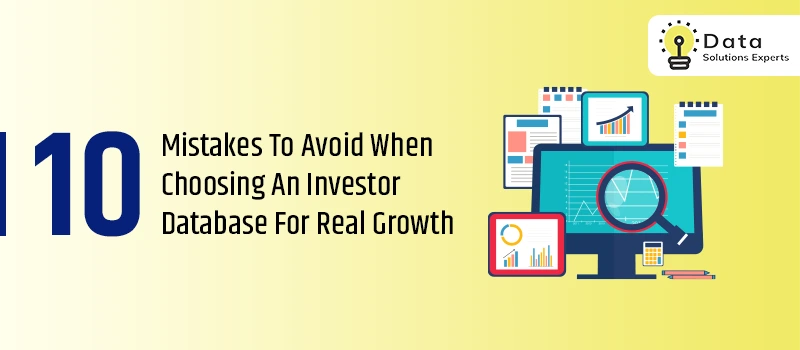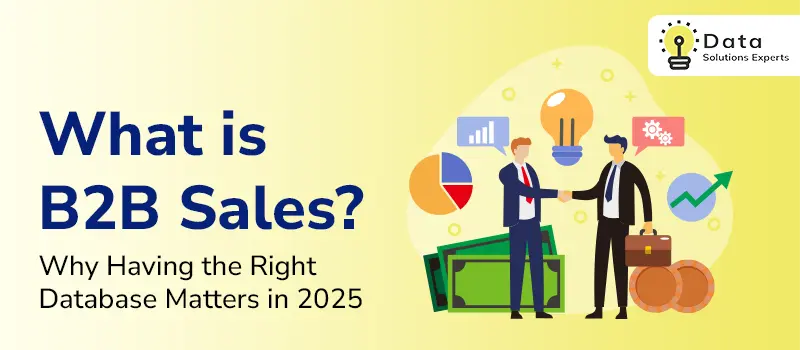“Data is the new oil. It’s valuable, but if unrefined it cannot really be used. It has to be changed into gas, plastic, chemicals, etc. to create a valuable entity that drives profitable activity; so must data be broken down, analyzed for it to have value.”
— Clive Humby, Data Scientist
Just as crude oil needs refining to become valuable, raw customer data must be meticulously processed, analyzed, and segmented to uncover its true potential. In the context of marketing databases, this means turning vast amounts of unstructured data into actionable insights that drive personalized marketing strategies, customer engagement, and business growth. A robust BFSI marketing database is essential for refining this data into targeted campaigns that meet the diverse needs of customers, thereby maximizing profitability and customer satisfaction.
Introduction to the Importance of Targeted Marketing in the BFSI Sector
A significant transformation is happening right now in the BFSI (Banking, Financial Services, and Insurance) sector, facilitated by their shift to digitalization alongside data analytics. Targeted marketing has become crucial in this sector due to its ability to cater to diverse customer needs, enhance customer experiences, and build long-term loyalty. After the pandemic, there has been a boom in digital interactions, as an increasing number of customers are turning to online banking and financial services. This transition has prompted BFSI companies to put money into digital marketing and MarTech (Marketing Technology) to more effectively engage customers and provide personalized experiences. A strong BFSI marketing database is now indispensable for executing effective financial services targeted marketing campaigns that drive customer engagement and satisfaction.
How Databases Enhance Customer Targeting and Service Personalization
The key to better customer targeting and personalization is marketing databases in the BFSI industry. Thanks to the collection and evaluation of significant customer information, financial institutions can categorize customers into various segments according to different features including demographics, behavior, and preferences. The division helps create customized marketing messages and offers that address the special requirements of each client. The abilities are on the rise because of advanced technologies, such as AI and machine learning, that permit real-time customer profiling and micro-segmentation, supporting contextual offers and personal engagement strategies. This approach is integral to customer data analytics BFSI, enabling a more refined understanding of customer behavior and preferences.
Geo-targeting, which uses location information, is currently a strong approach for personalized marketing in the BFSI domain. Banks are now able to customize promotions or notifications sent to their customers, depending on whether they are close to a branch or anticipate upcoming events nearby. This improves the customer experience and also helps sustain foot traffic in physical branches, evidence that, even in a world dominated by technology, face-to-face communication still matters. Utilizing a BFSI marketing database can help institutions further optimize their financial services targeted marketing efforts to ensure maximum reach and impact.
Case Study
The data-driven marketing evolution at a Small Finance Bank.
Background: A small finance bank, having a small market share in the Indian BFSI space, concentrates on less attended segments, especially in semi-urban and rural locales. To challenge larger financial institutions, the bank had to find a way to reach and involve these customers successfully. The bank collaborated with Data Solutions Experts (DSE) to build an extensive BFSI marketing database that could support their targeted marketing efforts.
Challenge: The fundamental issue was to improve customer acquisition and engagement without the elevated costs tied to conventional marketing. The bank decided to apply data analytics and digital channels to personalize the way it handles marketing activities, using customer data analytics BFSI for more precise targeting.
Strategy: The bank took on a broad data-driven strategy that included:
- Customer segmentation: The bank created targeted campaigns by segmenting its customers in a strong marketing database, based on their behaviors and preferences.
- Personalized marketing: To meet the special demands of its rural clientele, it initiated tailored marketing initiatives with individualized agricultural financing available during harvest seasons.
- Omnichannel approach: To keep a consistent and personalized customer experience, the bank contacted customers through several channels, inclusive of SMS, email, and social media.
Results:
- 35% increase in customer acquisition: Successful targeted campaigns have resulted in the reduction of acquisition costs by attracting new customers.
- 40% uptake in digital products: Personalized offers have promoted the adoption of digital banking among the customer segments that were identified.
- 20% growth in cross-selling revenue: The implementation of recommendations based on data produced successful cross-selling of various products, including loans and insurance.
The data-driven method of the bank shows that smaller financial organizations can utilize advanced analytics and a concentrated BFSI marketing database to realize major growth and customer engagement. Through this technique, the bank succeeded in competing well in a field that larger competitors regulated.
Here’s a fact for you: In 2023, approximately 71% of BFSI firms reported using big data analytics to gain a competitive advantage by understanding consumer behaviors and creating targeted marketing campaigns. (source)
Key Features to Look for in a Marketing Database for BFSI
When choosing a marketing database for the BFSI sector, certain key features are essential:
- Real-time data integration: The art of combining information from several sources, including CRM systems, transactional data, and external databases, in real time. This capability is crucial for maintaining an up-to-date and effective BFSI marketing database that supports timely decision-making and personalized customer interactions.
- Advanced analytics and AI capabilities: To deliver educational insights, tools including predictive analytics, customer profiling, and segmentation leverage artificial intelligence and machine learning. These capabilities are foundational to customer data analytics BFSI, enabling banks to derive actionable insights and deliver tailored services.
- Omnichannel integration: Promotion of the harmonious integration of marketing strategies across many channels (email, SMS, social media) to improve customer experience.
- Security and compliance: Protecting important financial data involves the use of tough data protection techniques along with following laws, such as GDPR and the Indian Data Protection Bill. The security and compliance of a BFSI marketing database are crucial for maintaining customer trust and meeting regulatory requirements.
Future Trends in BFSI Marketing and the Role of Data Analytics
The marketing landscape in the BFSI sector will experience a growth in advanced data analytics alongside a more substantial fusion of AI and ML moving forward. These technologies will support more accurate customer targeting, the avoidance of fraud, and automated customer service. Also, heightened attention to sustainability and ESG (Environmental, Social, Governance) criteria will affect the marketing and public perception of financial products. The adoption of a robust BFSI marketing database will be essential in this context, as it enables precise targeting and effective execution of financial services targeted marketing campaigns.
Did you know? The global data analytics in banking market was valued at $4.93 billion in 2021 and is projected to reach $28.11 billion by 2031, growing at a CAGR of 19.4% from 2022 to 2031. (source)
This signifies a profound shift towards data-driven decision-making in the BFSI sector. It reflects the increasing adoption of advanced analytics to enhance customer insights, optimize operations, and mitigate risks, enabling banks to stay competitive and agile in a dynamic financial landscape.
The BFSI industry will persist in its innovation of consumer engagement as a result of the quick adoption of digital-only banks and blockchain payment systems. To stay competitive as this landscape evolves, having personalized marketing supported by dependable databases and advanced analytics will be important.
By utilizing a database of marketing lists in India by data providers like Data Solutions Experts, BFSI companies can tap into a vast repository of customer data, enabling them to conduct more effective and localized marketing campaigns. This will play an important role as the sector evolves into a marketing approach that is both data-driven and focused on customers.
The Bottom Line
Given the continuous transformation of the BFSI sector, maintaining effective marketing databases has grown important for delivering tailored customer experiences and preserving a competitive advantage. Financial institutions can achieve precise customer targeting, enhance engagement, and drive business growth by utilizing advanced analytics, AI, and a strong databaseofmarketinglistsinIndia by contacting to Data Solutions Experts. A properly created BFSI marketing database allows BFSI companies to interact meaningfully with their target audience through geo-targeted engagements or personalized products.
For other BFSI companies aiming to navigate the complex digital landscape, partnering with experts like us and leveraging a curated database of marketing lists in India is a strategic move. This method improves marketing effectiveness and forms the basis for sustainable growth and customer loyalty in a highly competitive market.



